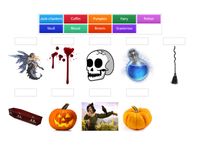Madrid
Where’s the pub? “¿Dónde está el bar?”. Estas cuatro palabras, según Paul Seligson, conforman la frase más útil para aprender inglés. El profesor británico, que lleva más de 30 años dando clases y charlas sobre enseñanza de idiomas por medio mundo, de Brighton a Río de Janeiro, considera básicamente que el modelo de aprendizaje está equivocado. Le dedicamos demasiado tiempo a aprender gramática “y rellenar huecos” y muy poco a usar “las orejas”, escuchar y hablar. De ahí la necesidad de buscar un bar, señala con sorna británica. Seligson defiende que es más lo que nos acerca que lo que nos separa al idioma de Shakespeare. “Para aprender inglés hay que pensar en español”, asegura.
Este mes ha pasado por Madrid para dar varias charlas a docentes. Aprovechamos su visita para preguntarle por una de las últimas promesas preelectorales sobre su materia. El presidente en funciones, Mariano Rajoy, quiere que en 10 años ningún universitario español acabe la carrera sin un nivel B2 (intermedio alto). Este especialista lo considera una propuesta “optimista” para la que habría que poner en marcha muchos cambios. Apenas un tercio de los ciudadanos españoles (35,5%) asegura hablar bien inglés, según datos el Instituto Nacional de Estadística (INE). Vivimos en un país al que distintos estudios internacionales sitúan a la cola de Europa en esta tarea.
Pregunta. ¿Por dónde habría que empezar para que todos los universitarios españoles salieran de la carrera con un buen nivel dentro de una década?
Respuesta. Preparando bien los niveles más elementales, como A1 y A2, y haciendo menos caso a la gramática. Los españoles que salen de las aulas con un C1 (avanzado) no hablan en realidad con ese nivel. Deben enfocarse mucho más en escuchar.
P. ¿Considera que es viable?
R. Es optimista. No me voy a meter en políticas, no sé de eso. Pero Colombia, que es similar en tamaño a España, se comprometió a lo mismo en 10 años con el horizonte de 2020 y ya se ve que no lo va a conseguir. Para intentarlo de verdad es necesario dejar de doblar películas, permitir a los alumnos escuchar más inglés, cambiar la forma de enseñar gramática y centrarse en la formación de profesores.
Los que nunca han escuchado en inglés nunca van a pensar en inglés dando cuatro horas a la semana
P. ¿Por qué no terminamos de aprender bien inglés los españoles?
R. Hay muchas razones. No es tan evidente. Es difícil adquirir una segunda lengua estudiando a tiempo parcial. Dedicamos de tres a cinco horas por semana y, solo con ese tiempo, puede llevarnos años y años. Cientos. Además, la pedagogía ha sido bombardeada, está herida. En lugar de buscar enlaces, te fuerzan a pensar en inglés aunque los lazos con el segundo idioma son siempre de la lengua materna. Hemos importado un modelo que obliga a separar los dos idiomas, aislar el inglés en lugar de buscar las palabras comunes. Y ambos tienen una base común de latín del 58%. Muchas palabras se parecen. Pero, en vez de pensar que los alumnos hablan español, catalán o gallego, lenguas romances, miramos al alumno como si fuera chino o árabe. Para aprender inglés hay que pensar en español.
Seligson habla español, francés y portugués con fluidez. Es autor de múltiples manuales como English ID, un método de seis cursos publicado por Richmond(sello de Santillana, integrada en el Grupo Prisa, editor de EL PAÍS) que se centra en enseñar a aprendices cuyo idioma materno es una de las lenguas románicas: portugués, castellano, francés, italiano, catalán o gallego, entre otras.
P. ¿Cuáles son las necesidades de un alumno español?
R. Escuchar, pronunciar, hablar y deletrear porque el español es una lengua pura, lo que ves es lo que dices. En cambio, les enseñamos gramática, vocabulario o lectura, que es lo que sale en los libros y en los exámenes internacionales. Si ves un texto en inglés puedes entender muchas palabras como principiante español. Se trata de pensar en los idiomas. Pero la ventaja se corta si el profesor te dice: ‘Olvídate del español, piensa en inglés’. En lugar de buscar enlaces, se destruyen. Es ridículo intentar aprender a pesar de lo que ya sabes.
El mejor es claramente un profesor español que sea bilingüe, porque ha pasado por lo mismo que debe pasar el alumno
P. Según su propuesta, llevamos muchos años haciéndolo mal.
R. Sí. Enseñé cinco años en el British Council de Valencia, de 1985 a 1990. Y nos decían: debes hablar solo inglés en clase y te irá mejor. Pero no es cierto. Think in English (piensa en inglés) es un mantra equivocado. Estás castigando a todos los alumnos, todo el tiempo, por lo más natural del mundo. Los que nunca han escuchado en inglés nunca van a pensar en inglés dando cuatro horas a la semana.
P. ¿Hasta qué punto es importante ver la televisión en versión original?
R. En Portugal se habla muy bien inglés porque la tele es en versión original con subtítulos, mientras que aquí está doblada y se nota, como en Francia o Italia, los tres países donde se habla peor de Europa. La lengua entra por las orejas. Ahora está mejorando muchísimo el aprendizaje porque los niños están escuchando más música, miran vídeos en Internet, en YouTube… todo eso ayuda mucho pero el profesor aún no está preparado para formar la parte auditiva.
P. ¿Tan crucial es esa parte?
R. Le diré algo que siempre cuento en mis charlas. Tenemos cuatro habilidades en la vida, ¿cuál se usa más? La parte auditiva se emplea un 45%. Nos pasamos la vida escuchando, un 30% hablando, el 16% del tiempo leyendo y solo 9% escribiendo. Los exámenes de las escuelas oficiales reparten estas habilidades por igual, al 25% cada una. Y en la vida no es así.
P. ¿Cómo sería para usted el mejor profesor?
R. En España hay muchos muy buenos. El mejor es claramente un profesor español que sea bilingüe, porque ha pasado por lo mismo que debe pasar el alumno. Ser nativo no es la solución, no tiene nada que ver. ¿Cuántos alumnos van a ser nativos? Cero. El objetivo es falso, es una obsesión comercial para vender un producto. Yo no quiero un nativo, quiero uno que sepa dónde estoy, que entienda qué errores puedo cometer porque los ha visto antes y que me pueda ayudar lo más rápido posible.



